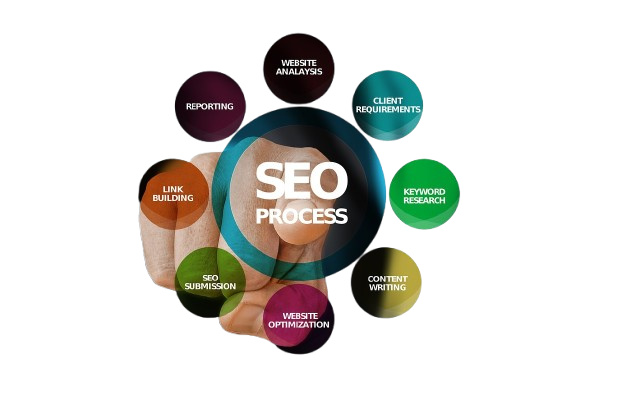
Unlocking Digital Success: The Power of SEO in Marketing
Unlocking Digital Success: The Power of SEO in Marketing
In today’s digital landscape, businesses continually seek ways to enhance their online presence. Among various strategies, Search Engine Optimization (SEO) is a powerful tool that can significantly affect a company’s visibility, traffic, and overall success. In this article, we will explore the importance of SEO in digital marketing, its key components, and best practices that can help businesses unlock their full potential.
Understanding SEO
SEO is optimizing a website to improve its ranking on search engine results pages (SERPs). When users search for information online, search engines like Google use complex algorithms to determine which websites are most relevant to the query. By implementing effective SEO strategies, businesses can increase their chances of appearing at the top of these results.
Why SEO Matters
- Increased Visibility and Traffic: SEO’s primary goal is to improve search engine visibility. Higher rankings lead to more clicks and, consequently, more traffic to your website. Studies show that most users never scroll past the first page of search results, making it crucial for businesses to be visible where their potential customers are looking.
- Cost-Effectiveness: Unlike paid advertising, which requires continuous investment, SEO focuses on attracting organic traffic. While it requires an upfront investment of time and resources, the long-term benefits often outweigh the costs. Once a website ranks well, it can maintain that position without ongoing payments.
- Enhanced User Experience: SEO is not just about search engines; it’s also about providing a great user experience. A well-optimized website is user-friendly, loads quickly, and easily navigates. These factors contribute not only to better rankings but also to higher user satisfaction.
- Building Brand Credibility: Users often perceive websites at the top of search results as more credible and trustworthy. Effective SEO helps establish your brand as an authority in your industry, which can lead to increased customer loyalty and conversions.
- Long-Term Strategy: SEO is a long-term marketing strategy. While it may take time to see significant results, the benefits can be enduring. With ongoing optimization and updates, a well-optimized website can continue to attract traffic for years.
Key Components of SEO
To effectively implement SEO, businesses must focus on several key components:
- Keyword Research
Keyword research is the foundation of any successful SEO strategy. It involves identifying potential customers’ terms and phrases when searching for products or services. Tools like Google Keyword Planner, SEMrush, and Ahrefs can help businesses find relevant keywords with high search volume and manageable competition.
- On-Page SEO
On-page SEO optimizes individual web pages to rank higher and earn more relevant traffic. Key elements include:
- Title Tags: Each page should have a unique title tag that includes primary keywords and accurately describes the content.
- Meta Descriptions: A compelling meta description encourages users to click on your link and should include relevant keywords.
- Headers and Subheaders: Use headers (H1, H2, H3) to structure content and include keywords where appropriate.
- Content Quality: High-quality, relevant content is crucial. It should address user queries and provide value, encouraging more extended engagement on the page.
- Internal Linking: Linking to other pages on your website helps search engines understand your site structure and keeps users engaged longer.
- Technical SEO
Technical SEO involves optimizing the infrastructure of your website to ensure that search engines can crawl and index it effectively. Key aspects include:
- Site Speed: Fast-loading pages improve user experience and are favored by search engines.
- Mobile Responsiveness: With a growing number of searches conducted on mobile devices, having a mobile-friendly website is essential.
- XML Sitemaps: Creating and submitting an XML sitemap helps search engines understand the structure of your website.
- Secure Sockets Layer (SSL): Having an HTTPS site is essential for Google’s security and ranking.
- Off-Page SEO
Off-page SEO refers to actions taken outside your website to impact your rankings. This primarily involves link building:
- Backlinks: Quality backlinks from reputable sites signal to search engines that your content is trustworthy and valuable. To earn backlinks, focus on building relationships with industry influencers and creating shareable content.
- Social Media Engagement: While social media signals are not direct ranking factors, promoting content through social channels can increase visibility and generate traffic, leading to more backlinks.
Best Practices for SEO Success
To maximize the effectiveness of your SEO efforts, consider the following best practices:
- Stay Updated with Algorithm Changes
Search engines frequently update their algorithms. Staying informed about these changes helps you adapt your strategies and maintain or improve your rankings.
- Focus on User Intent
It is critical to understand user intent—what users are looking for when they type a query. Create content that answers their questions, solves their problems, or addresses their needs.
- Optimize for Local SEO
Local SEO is essential for businesses with a physical presence. Optimize your Google My Business listing and use local keywords to attract nearby customers.
- Monitor and Analyze Performance
Tools like Google Analytics and Google Search Console monitor website performance. Analyze traffic patterns, user behavior, and ranking changes to refine your strategies over time.
- Create Quality Content Regularly
Regularly updating your website with fresh, high-quality content keeps it relevant and encourages return visits. Consider starting a blog to share industry insights, tips, and news.
Conclusion
In the competitive digital marketing landscape, SEO is a powerful tool that can unlock significant business opportunities. By investing time and resources into effective SEO strategies, companies can enhance their visibility, drive organic traffic, and build a strong online presence. As the digital world evolves, staying committed to SEO best practices will be key to long-term success. Whether you’re a small business or a large corporation, embracing SEO can help you navigate the complexities of digital marketing and achieve your business goals.


